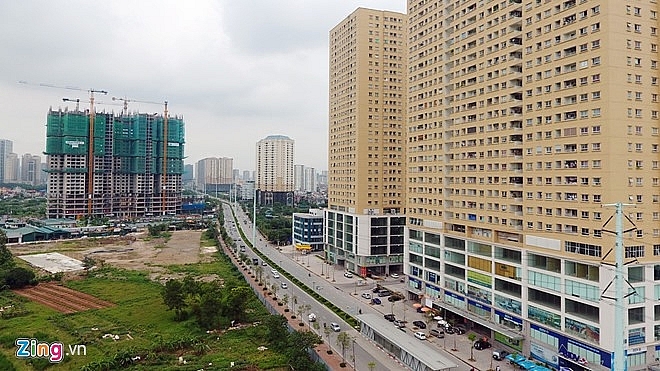Banks begin tightening screws on property credit
 |
| Banks begin tightening screws on property credit, photo zing.vn |
Khanh, 54, of HCM City’s Tan Phu District, said he was told by the lender that the interest rate had been increased to 12 per cent.
“I am looking to sell some of my land to reduce the loans because I am afraid the interest rates would continue to rise and I will be unable to afford,” he said.
While Khanh complains about the increase in the rates, Nguyen Cong Tang of Thu Đuc District is unhappy that a bank refused to lend him 70 per cent of the value of a house he wants to buy.
He said in the past the bank was always ready to lend him the money but now they are only willing to lend half.
Market observers say interest rates on loans for home purchase, improvement and construction at many banks have increased by around two percentage points in recent months.
Borrowers now have to pay around 12.5 per cent for medium-term real estate-related loans.
The loan amounts have been reduced significantly and are no longer 70 per cent of the value of the asset.
This follows the State Bank of Vietnam’s requirement that commercial banks have to tighten credit to the stock and real estate markets.
The central bank has instructed commercial banks to maintain credit growth in these sectors within safe limits.
It has also instructed them to monitor borrowers’ finances and the progress of their projects in the case that housing developers are borrowers.
Lending should go hand in hand with careful supervision to ensure loans are used for the purposes they are intended for and do not add to the bad debts, it has said.
Banks should shift their focus from “risky areas” to agriculture and industry, with priority on exports, supporting industries and high-tech investments.
Loans in the city total around VNĐ220 trillion (US$9.7 billion) now, of which 28.7 per cent, or VNĐ63.14 trillion ($2.8 billion), is in real estate and personal loans are also used to buy property.
An estimated VNĐ261.41 trillion was injected into the city’s real estate market last year, up VNĐ15.14 trillion from 2016.
Nguyen Hoang Minh, deputy director of the SBV’s branch in HCM City, says many banks have taken on board the central bank’s warning about lending to high-risk sectors such as real estate, particularly to projects in areas where land prices have surged, like districts 9, Can Gio, Cu Chi, and Hoc Mon.
They are now hiking loan interest rates or reducing loan amounts to 30-50 per cent of the value of the assets.
A senior banker also reveals that most banks, including, his do not accept assets in high-risk areas as collateral for loans.
But have these measures had an effect on property prices?
Analysts point out that property prices are unlikely to fall right away, pointing to their cyclical nature.
The market has gotten used to the new price levels and they would take a lot of time to come down, they said.
What the stars mean:
★ Poor ★ ★ Promising ★★★ Good ★★★★ Very good ★★★★★ Exceptional
 Tag:
Tag:
Related Contents
Latest News
More News
- Vietnam breaks into Top 10 countries and regions for LEED outside the US (February 05, 2026 | 17:56)
- Fairmont opens first Vietnam property in Hanoi (February 04, 2026 | 16:09)
- Real estate investment trusts pivotal for long-term success (February 02, 2026 | 11:09)
- Dong Nai experiences shifting expectations and new industrial cycle (January 28, 2026 | 09:00)
- An Phat 5 Industrial Park targets ESG-driven investors in Hai Phong (January 26, 2026 | 08:30)
- Decree opens incentives for green urban development (January 24, 2026 | 11:18)
- Public investment is reshaping real estate’s role in Vietnam (January 21, 2026 | 10:04)
- Ho Chi Minh City seeks investor to revive Binh Quoi–Thanh Da project (January 19, 2026 | 11:58)
- Sun Group launches construction of Rach Chiec sports complex (January 16, 2026 | 16:17)
- CEO Group breaks ground on first industrial park in Haiphong Free Trade Zone (January 15, 2026 | 15:47)






















 Mobile Version
Mobile Version